I don't know if you know this, guys, but Sailor Moon has been remastered and is being re-released on Hulu. Possibly on other non-internet channels as well, but I'm less up on that. The exciting bit is that this Sailor Moon is the original Japanese version with freshly translated subtitles, cleaned up images, and no weird story changes in order to make it more "palatable" for an American audience.
What we're left with is the pure, unfiltered show as it was always meant to be, and that's amazing. I've been watching it because of course I have (only the first season is up on Hulu so far), and I have to say that it's wonderful. Also, though, I'm finding that there is a lot more going on in this show than I remember. Probably because I was a little kid myself when it was first airing in the US.
The thing is, sometime in the past fifteen years or so, I kind of forgot what the show is actually like. I remembered the plot, of course, because how could you forget a plot like this? But I didn't remember precisely how the show manages to show a complex understanding of feminine strength in various forms and how it never privileges one form of strength over another. In other words, I forgot precisely how much this show rules and needs to be watched by everyone ever.
There's no angst. Like, I feel like it's hard to remember why that's a big deal, but it is. Just think about it. When else have we seen a portrayal of a teenage girl who gains magical superpowers, and who doesn't immediately start angsting about what this means and how she can no longer live a normal life and being all sad. It's become an incredibly accepted trope, that one cannot have superpowers without being conflicted about how they impact your life. I mean, Buffy was always buried under the weight of her chosen-ness. She loved being a "hot chick with superpowers", but she also worried about how it led to a lonely road and how it changed her life.
Usagi does not have that problem. Usagi does not think that having superpowers negatively affects her life. Usagi really liked having magic powers that help her solve problems, and even when they don't help her in an obvious way, she still doesn't mind them. Usagi, and this is the most important bit for me, is excited to have powers and even more excited to meet other girls who also have powers. In other words, this show is incredibly progressive because it's doesn't just feature a teenage girl with magic abilities saving the world, it also shows her teaming up with other super-powered teenagers and being friends with them.
That shouldn't be a big thing, it really shouldn't, but it is. And it's the large bulk of what I forgot about the show. I forgot that as much as Sailor Moon is about fighting evil and saving people, it's much more fundamentally about being friends and loving who you are. And that's absolutely amazing. In fact, I would go so far as to say that this is precisely the show that I want any preteen girl to be watching. No, it doesn't get it right 100% of the time, but it gets it right a lot more than most shows can boast.
Before we get into that, though, let's take a minute and remember what the show is actually about: Usagi (voiced by Kotono Mitsuishi) is a clumsy, lazy, food-obsessed high school student who rescues a mysterious cat on her way to school one day and gains magical powers. She gains the ability to turn into Sailor Moon, the "pretty guardian who fights for love and justice". Basically, an awesome superhero in a cute costume who stops weird monsters from sucking people's "energy".
It's a bit silly, and that's okay.
As she goes through her adventures, Usagi starts to pick up some friends: namely, Sailors Mercury and Mars. Sailor Mercury is a bookish girl named Ami (Hisako Kanemoto) who relies on her intellect to solve their occasional mysteries, and Sailor Mars is a shrine maiden named Rei (Rina Satou) with anger management problems. I relate best to Rei, and I try not to read all that much into that.
The show itself is very episodic, with each episode (in the first season at least) starting when the bad guys hatch some scheme to hurt people, and then we cut to Usagi and her friends vaguely noticing that something bad is happening before they realize that maybe they ought to do something about it. I wish I could give a more concise explanation, but you get the drift. Eventually Usagi manages to get her head above all of the random crap going on in her life long enough to save the day and defeat the monster, and then everything is cool again. Hurray!
When I put it like this, it's actually a little hard to see why this is such a feminist show. I mean, shouldn't the ultimate feminist show be more serious and self-aware and intentional?
To my mind, no, it shouldn't. Look, Usagi is a pretty useless character. She's not very smart, she's not particularly hard-working, she's wildly irresponsible, and she cries all the time. Arguably I should hate her. But I don't hate her, and I don't really know anyone who does. More than that, for all that she's pretty much the worst candidate for getting superpowers that I can think of, she's actually really great at being a superhero. Not because she's self-assured or capable of resisting the enemy's tricks,* but because Usagi really loves people and wants to help them.
It's not that she's an inherently good person or even a particularly capable one, it's that Usagi wants to be a good person and a capable one. She's a great hero because she wants to help people. She's a leader because she genuinely enjoys other human beings and wants them to be well. I mean, for crying out loud, she goes in one episode from thinking that Ami is a monster who must be defeated to declaring them best friends and spending all of her time with her. And that's not out of character. That's just what Usagi does.
And for all that I find it hilarious how ill-equipped she is for being a superhero, I actually stinking love that the greatest defense Earth has against trans-dimensional monsters is a fourteen year old girl who fantasizes about food all the time, is chronically late for school, is super sensitive and over-emotional, and who moons over cute guys. I don't find that anti-feminist at all, actually. I find it incredibly, wonderfully feminist.
I find it feminist, and healthy and commendable and stuff, because Usagi isn't considered less because she likes girly things. She's not a worse person because she's a bit silly sometimes, that's just who she is. And sure, her tendencies to get distracted can be a little frustrating to everyone around her (mostly Rei and Luna, her magical cat), but they aren't inherently bad. Oftentimes, it's Usagi's distraction and wandering mind that ends up helping defeat the monster.
I guess the big thing I get from it is that the show makes it clear that you, as you are, are a hero. You don't have to wait until you're some big grownup who can make reasonable choices and it's a complete and total mess before you can save the world. You can save the world right now, as you, you beautiful mess. That appeals to me.
Because, to be fair, that's much more true to life, isn't it? As someone probably very famous said, "God doesn't call the equipped, he equips the called." You don't automatically start out with the skills and talents and inherent abilities to do the thing that you need to do. You have to learn those along the way. And not being qualified to do something doesn't mean you don't still have to do it.
Obviously this does not hold true in all cases. I don't want my surgeon to be learning things as she goes along, I would like her to already have all of the training and information she needs in order to make me not die. But it is very true of life. You have to start living and taking care of yourself well before you feel ready. I don't actually know anyone who genuinely and truly felt that they were prepared for adulthood when it came. You just go with it. You save the world even though you failed your last math test.
Which is sort of another thing I love about this show: it makes the incredibly valid point that you just plain old won't ever be good at everything. Usagi is great at being Sailor Moon and saving the world. She's awesome at friendship and videogames and loving people well. She is terrible at school. Really, objectively terrible. And that's okay. That makes sense. In fact, it makes more sense that she would be in some way flawed than that she wouldn't be. A show where the female superhero character is always perfect would actually be more regressive than a show where she has flaws. Because if she has flaws, she's a person, and I've always believed that women are people.
What makes this even better is that Usagi isn't the only female character in the show. A lot of stories fall into that trap, of making a really amazing and progressive female character as their leader, and then surrounding her exclusively with dudes. I get why that happens, but I also think it is bad and shouldn't happen. Fortunately, Sailor Moon doesn't do that. Arguably, it does the inverse. There are very few dudes in this universe, and instead of seeing male characters, what we get are really complex and interesting differed views of femininity and female power.
Let's just take the main three sailor scouts from the first season as examples. First you have Usagi the beautiful mess. Her reaction to becoming a superhero is pretty much, "Sweet! I have infinite power! I want a cookie!" Which is totally a valid response. Then there's Ami, who reacts with a calm and determined, "Okay, I guess I now have to go to the library and read every book ever written on the topic of celestial powers because if I'm going to be a superhero, I need to know what I'm doing."
And then there's Rei, who reacts with a very simple, "Of course I'm a superhero I was already a superhero, get out of my way I need to be superheroing."
All three of these are totally valid reactions to suddenly gaining massive amounts of magical power, but they're all completely different. Not one girl reacted the same way as another at all, but they all reacted well and complexly and in fitting kind with their characters. Women are complex. Female strength is a large category. Heck yes there is a diversity of reaction here!
I love this show because it gives us both Usagi and Rei and doesn't tell us that either of them is wrong. It gives three completely different approaches and privileges none of them. What this means for a teenage (or younger) girl watching the show is that she can look at this wealth of female characters (I mean, I haven't even mentioned the other sailor scouts, or the friends hanging around, or the villains) and she can decide who she wants to be. Who she wants to emulate. What pieces she relates to.
That matters.
Also, incidentally, the male characters are also pretty cool. Tuxedo Mask largely works as a deconstruction of female superhero types in other media - in that he always shows up to give Usagi a pep talk and then mysteriously disappear without doing anything useful - and he's honestly just a fun character. Umino is a cute little weirdo, and Jadeite is about as complex as you expect a villain to be in this kind of show. What's notable here is that while these male characters aren't as complex as their female counterparts, they are still complicated, and more than that, they show a multiplicity of masculine forms. That matters too.
But most of all, if you're looking for something to watch this summer, you should watch Sailor Moon because it's fun, and it makes you feel good inside. I think of it as the emotional equivalent of drinking a fruit smoothie. It's good for you, sure, but not as good as like eating a head of kale or something. It tastes great, and it won't make your insides hate you. What more do you really need?
*My friend Kyla and I were discussing why Usagi always falls for the villains' schemes, while some of the other Sailor Scouts don't. We weren't sure if this was a writing inconsistency, or if it was, as Kyla put it, "Because she's weak." Either way, I'm okay with it. It makes for a better story.
What we're left with is the pure, unfiltered show as it was always meant to be, and that's amazing. I've been watching it because of course I have (only the first season is up on Hulu so far), and I have to say that it's wonderful. Also, though, I'm finding that there is a lot more going on in this show than I remember. Probably because I was a little kid myself when it was first airing in the US.
The thing is, sometime in the past fifteen years or so, I kind of forgot what the show is actually like. I remembered the plot, of course, because how could you forget a plot like this? But I didn't remember precisely how the show manages to show a complex understanding of feminine strength in various forms and how it never privileges one form of strength over another. In other words, I forgot precisely how much this show rules and needs to be watched by everyone ever.
There's no angst. Like, I feel like it's hard to remember why that's a big deal, but it is. Just think about it. When else have we seen a portrayal of a teenage girl who gains magical superpowers, and who doesn't immediately start angsting about what this means and how she can no longer live a normal life and being all sad. It's become an incredibly accepted trope, that one cannot have superpowers without being conflicted about how they impact your life. I mean, Buffy was always buried under the weight of her chosen-ness. She loved being a "hot chick with superpowers", but she also worried about how it led to a lonely road and how it changed her life.
Usagi does not have that problem. Usagi does not think that having superpowers negatively affects her life. Usagi really liked having magic powers that help her solve problems, and even when they don't help her in an obvious way, she still doesn't mind them. Usagi, and this is the most important bit for me, is excited to have powers and even more excited to meet other girls who also have powers. In other words, this show is incredibly progressive because it's doesn't just feature a teenage girl with magic abilities saving the world, it also shows her teaming up with other super-powered teenagers and being friends with them.
That shouldn't be a big thing, it really shouldn't, but it is. And it's the large bulk of what I forgot about the show. I forgot that as much as Sailor Moon is about fighting evil and saving people, it's much more fundamentally about being friends and loving who you are. And that's absolutely amazing. In fact, I would go so far as to say that this is precisely the show that I want any preteen girl to be watching. No, it doesn't get it right 100% of the time, but it gets it right a lot more than most shows can boast.
Before we get into that, though, let's take a minute and remember what the show is actually about: Usagi (voiced by Kotono Mitsuishi) is a clumsy, lazy, food-obsessed high school student who rescues a mysterious cat on her way to school one day and gains magical powers. She gains the ability to turn into Sailor Moon, the "pretty guardian who fights for love and justice". Basically, an awesome superhero in a cute costume who stops weird monsters from sucking people's "energy".
It's a bit silly, and that's okay.
As she goes through her adventures, Usagi starts to pick up some friends: namely, Sailors Mercury and Mars. Sailor Mercury is a bookish girl named Ami (Hisako Kanemoto) who relies on her intellect to solve their occasional mysteries, and Sailor Mars is a shrine maiden named Rei (Rina Satou) with anger management problems. I relate best to Rei, and I try not to read all that much into that.
The show itself is very episodic, with each episode (in the first season at least) starting when the bad guys hatch some scheme to hurt people, and then we cut to Usagi and her friends vaguely noticing that something bad is happening before they realize that maybe they ought to do something about it. I wish I could give a more concise explanation, but you get the drift. Eventually Usagi manages to get her head above all of the random crap going on in her life long enough to save the day and defeat the monster, and then everything is cool again. Hurray!
When I put it like this, it's actually a little hard to see why this is such a feminist show. I mean, shouldn't the ultimate feminist show be more serious and self-aware and intentional?
To my mind, no, it shouldn't. Look, Usagi is a pretty useless character. She's not very smart, she's not particularly hard-working, she's wildly irresponsible, and she cries all the time. Arguably I should hate her. But I don't hate her, and I don't really know anyone who does. More than that, for all that she's pretty much the worst candidate for getting superpowers that I can think of, she's actually really great at being a superhero. Not because she's self-assured or capable of resisting the enemy's tricks,* but because Usagi really loves people and wants to help them.
It's not that she's an inherently good person or even a particularly capable one, it's that Usagi wants to be a good person and a capable one. She's a great hero because she wants to help people. She's a leader because she genuinely enjoys other human beings and wants them to be well. I mean, for crying out loud, she goes in one episode from thinking that Ami is a monster who must be defeated to declaring them best friends and spending all of her time with her. And that's not out of character. That's just what Usagi does.
And for all that I find it hilarious how ill-equipped she is for being a superhero, I actually stinking love that the greatest defense Earth has against trans-dimensional monsters is a fourteen year old girl who fantasizes about food all the time, is chronically late for school, is super sensitive and over-emotional, and who moons over cute guys. I don't find that anti-feminist at all, actually. I find it incredibly, wonderfully feminist.
I find it feminist, and healthy and commendable and stuff, because Usagi isn't considered less because she likes girly things. She's not a worse person because she's a bit silly sometimes, that's just who she is. And sure, her tendencies to get distracted can be a little frustrating to everyone around her (mostly Rei and Luna, her magical cat), but they aren't inherently bad. Oftentimes, it's Usagi's distraction and wandering mind that ends up helping defeat the monster.
I guess the big thing I get from it is that the show makes it clear that you, as you are, are a hero. You don't have to wait until you're some big grownup who can make reasonable choices and it's a complete and total mess before you can save the world. You can save the world right now, as you, you beautiful mess. That appeals to me.
Because, to be fair, that's much more true to life, isn't it? As someone probably very famous said, "God doesn't call the equipped, he equips the called." You don't automatically start out with the skills and talents and inherent abilities to do the thing that you need to do. You have to learn those along the way. And not being qualified to do something doesn't mean you don't still have to do it.
Obviously this does not hold true in all cases. I don't want my surgeon to be learning things as she goes along, I would like her to already have all of the training and information she needs in order to make me not die. But it is very true of life. You have to start living and taking care of yourself well before you feel ready. I don't actually know anyone who genuinely and truly felt that they were prepared for adulthood when it came. You just go with it. You save the world even though you failed your last math test.
Which is sort of another thing I love about this show: it makes the incredibly valid point that you just plain old won't ever be good at everything. Usagi is great at being Sailor Moon and saving the world. She's awesome at friendship and videogames and loving people well. She is terrible at school. Really, objectively terrible. And that's okay. That makes sense. In fact, it makes more sense that she would be in some way flawed than that she wouldn't be. A show where the female superhero character is always perfect would actually be more regressive than a show where she has flaws. Because if she has flaws, she's a person, and I've always believed that women are people.
What makes this even better is that Usagi isn't the only female character in the show. A lot of stories fall into that trap, of making a really amazing and progressive female character as their leader, and then surrounding her exclusively with dudes. I get why that happens, but I also think it is bad and shouldn't happen. Fortunately, Sailor Moon doesn't do that. Arguably, it does the inverse. There are very few dudes in this universe, and instead of seeing male characters, what we get are really complex and interesting differed views of femininity and female power.
Let's just take the main three sailor scouts from the first season as examples. First you have Usagi the beautiful mess. Her reaction to becoming a superhero is pretty much, "Sweet! I have infinite power! I want a cookie!" Which is totally a valid response. Then there's Ami, who reacts with a calm and determined, "Okay, I guess I now have to go to the library and read every book ever written on the topic of celestial powers because if I'm going to be a superhero, I need to know what I'm doing."
And then there's Rei, who reacts with a very simple, "Of course I'm a superhero I was already a superhero, get out of my way I need to be superheroing."
All three of these are totally valid reactions to suddenly gaining massive amounts of magical power, but they're all completely different. Not one girl reacted the same way as another at all, but they all reacted well and complexly and in fitting kind with their characters. Women are complex. Female strength is a large category. Heck yes there is a diversity of reaction here!
I love this show because it gives us both Usagi and Rei and doesn't tell us that either of them is wrong. It gives three completely different approaches and privileges none of them. What this means for a teenage (or younger) girl watching the show is that she can look at this wealth of female characters (I mean, I haven't even mentioned the other sailor scouts, or the friends hanging around, or the villains) and she can decide who she wants to be. Who she wants to emulate. What pieces she relates to.
That matters.
Also, incidentally, the male characters are also pretty cool. Tuxedo Mask largely works as a deconstruction of female superhero types in other media - in that he always shows up to give Usagi a pep talk and then mysteriously disappear without doing anything useful - and he's honestly just a fun character. Umino is a cute little weirdo, and Jadeite is about as complex as you expect a villain to be in this kind of show. What's notable here is that while these male characters aren't as complex as their female counterparts, they are still complicated, and more than that, they show a multiplicity of masculine forms. That matters too.
But most of all, if you're looking for something to watch this summer, you should watch Sailor Moon because it's fun, and it makes you feel good inside. I think of it as the emotional equivalent of drinking a fruit smoothie. It's good for you, sure, but not as good as like eating a head of kale or something. It tastes great, and it won't make your insides hate you. What more do you really need?
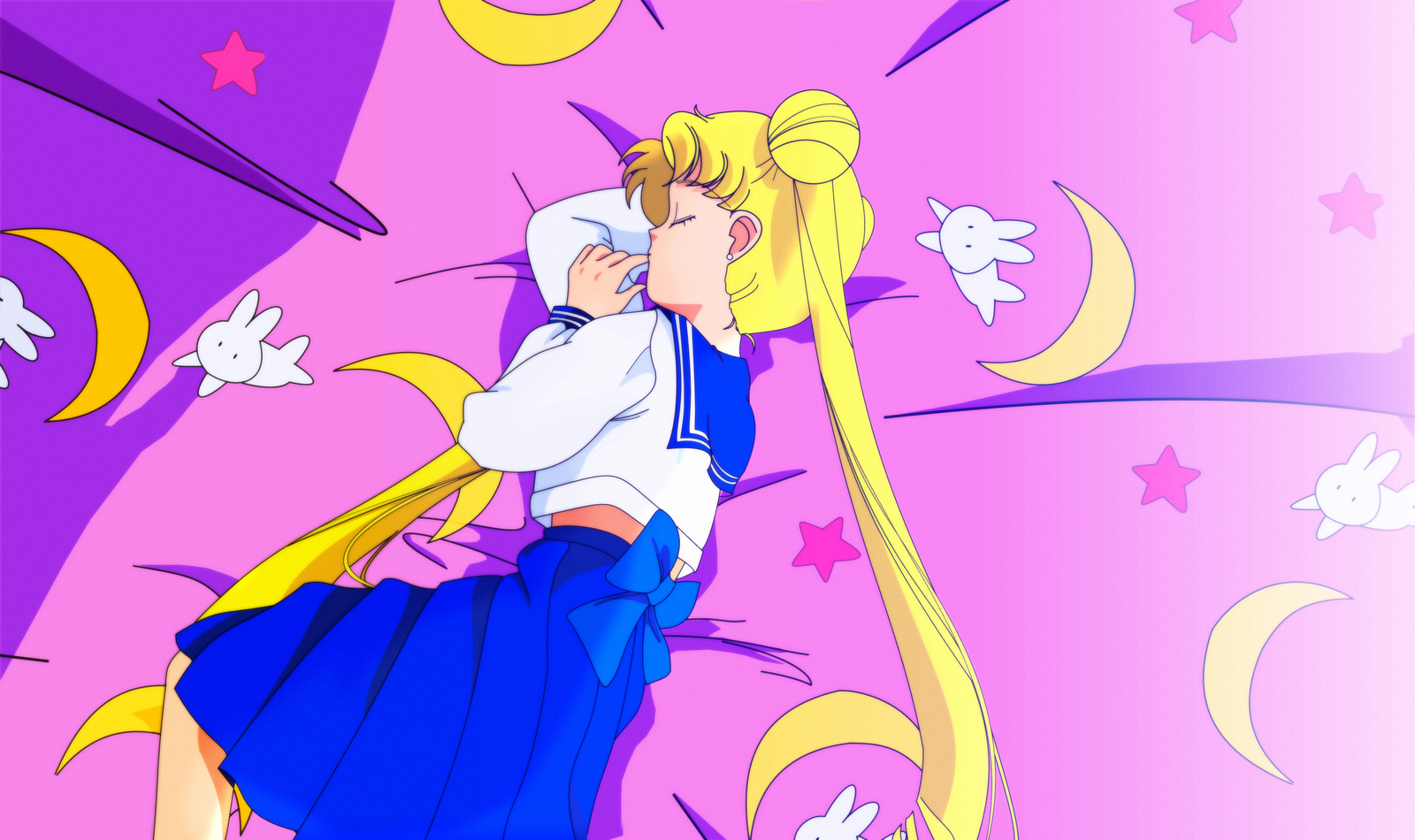 |
| Usagi and I share a favorite hobby: sleeping. |

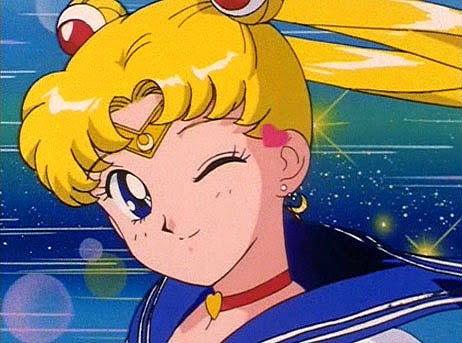
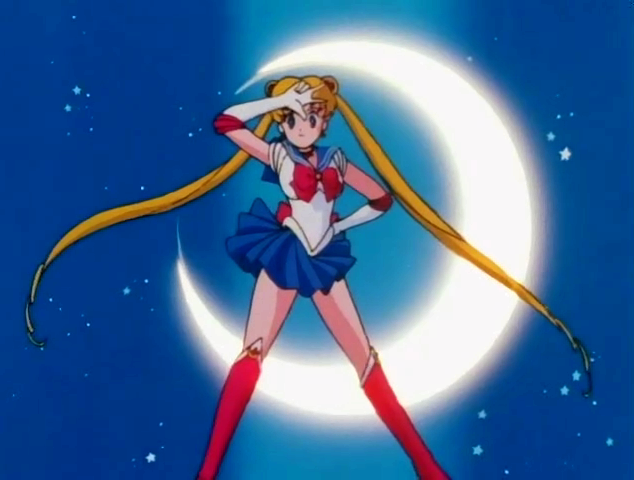
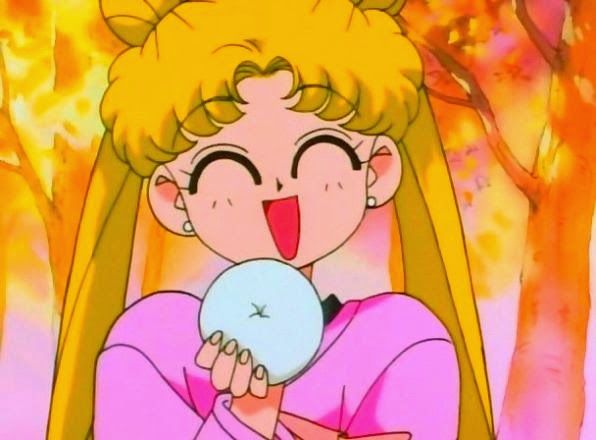
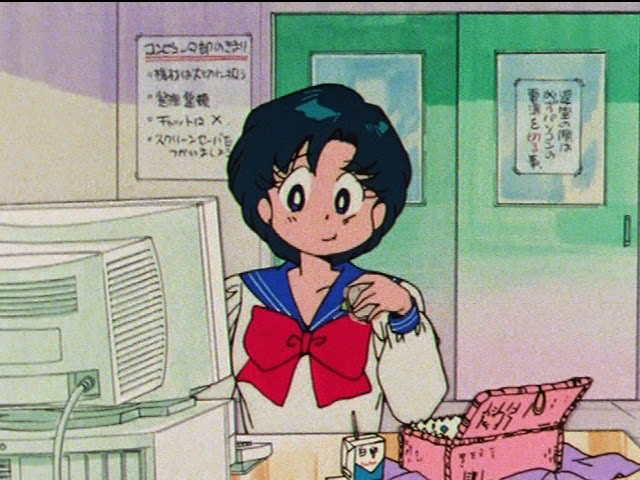
VILLAGE CALL GIRL
ReplyDeleteCALL GIRL
CALL GIRLS
ESCORT
ESCORTS
KOLKATA FEMALE ESCORTS
KOLKATA HOTEL ESCORTS
KOLKATA MODEL ESCORTS
KOLKATA CALL GIRL
KOLKATA CALL GIRL SERVICE
KOLKATA CALL GIRL SERVICE
KOLKATA CALL GIRLS
CALL GIRL
CALL GIRLS
CALL GIRLS SERVICE
CALL GIRL SERVICE
KOLKATA INDEPENDENT CALL GIRLS
KOLKATA INDEPENDENT CALL GIRL
ESCORT
KOLKATA INDEPENDENT MODEL ESCORTS
KOLKATA CALL GIRLS ESCORTS
KOLKATA CHEEP ESCORTS
KOLKATA CALL GIRLS NUMBER ESCORTS
KOLKATA HIGH PROFILE ESCORTS
KOLKATA AIRHOSTESS ESCORTS
KOLKATA PARK HOTEL ESCORTS
KOLKATA PARK HOTEL ESCORT
KOLKATA FIVE STAR ESCORT SERVICE
KOLKATA HOUSEWIFE ESCORT SERVICE
KOLKATA BOUDHI ESCORTS
INDEPENDNET ESCORT IN KOLKATA
KOLKATA ESCORT AGENCY
RUSSIAN ESCORT
RUSSIAN ESCORTS
RUSSIAN CALL GIRL
RUSSIAN CALL GIRLS
HOUSEWIFE ESCORT